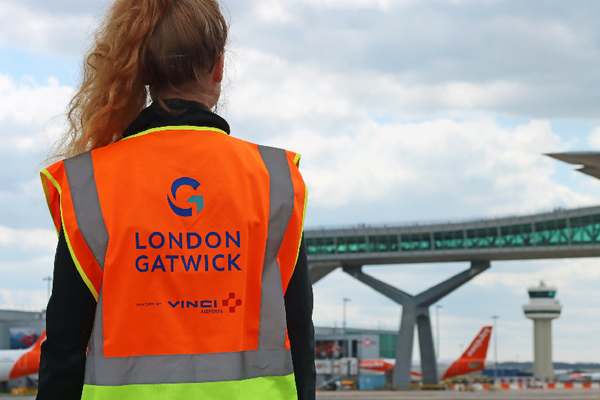EasyJet profits tumble following ‘difficult year’
 James Chapple
James ChappleEasyJet has blamed a “difficult year”, which saw Brexit impact consumer confidence and fuel prices soar, for a fall in its annual profits of more than a quarter.
The carrier, on Tuesday (19 November), posted full-year profit before tax (12 months to 30 September) of £427 million, down 26% from £578 million this time last year.
EasyJet said the result was towards the top end of its previous £420 million to £430 million profit guidance.
It came despite 8.6% growth in annual passenger numbers to 96.1 million, albeit at a rate of growth down 1.6% on full year 2018/19.
Capacity increased 10.3% from 95.3 million seats to 105 million at a load factor of 91.5%, down 1.4 percentage points on last year.
Total revenue increased 8.3% to £6.385 million, up from £5.898 million, driven – said easyJet – by this increase in capacity.
Total revenue per seat, however, declined 1.8% from £61.94 to £60.81 “driven by some weakness in consumer confidence” and “uncertainty around the original March 2019 Brexit date”, albeit offset by the impact of strikes at British Airways and Ryanair.
Fuel cost per seat, meanwhile, increased 8.4% to £13.48, which easyJet said was partially offset by continued investment in more fuel efficient aircraft.
EasyJet said forward bookings for first half 2019/20 were slightly ahead of last year, while capacity growth is likely to be more conservative, falling in the lower end of its guidance of 3% to 8%.
It expects its new holidays division, due to launch by Christmas, to break even next year, while proposals to immediately offset all carbon emissions from flight fuel are expected to cost around £25 million over the next year.
“EasyJet finished the 2019 financial year with a strong performance across the business and a record summer,” said chief executive Johan Lundgren. “More customers than ever are coming to easyJet as their airline of choice, with a record 96.1 million customers flying with us this year.
“Our self-help initiatives meant we have been able reduce costs and drive a better yield performance which has improved revenue per seat in the second half of the year.
“We have also invested in tackling disruption for our customers through our operational resilience programme, which has reduced cancellations by 46% and lowered delays of three hours or more by 24% year-on-year.”
EasyJet says it is “well prepared” for all Brexit eventualities having restructured itself as a pan-European airline group with bases in Austria, Switzerland and the UK. It has also realigned its share ownership to ensure at least 50% are held by EU nationals, and has made contingency plans in the event of a no-deal Brexit to guarantee this and ensure it is able to continue flying.
“EasyJet continues to closely monitor demand on all of our routes, in the event that political events may affect our customers’ propensity to travel,” said the carrier, adding: “Having started our Brexit preparations early and with contingency plans in place, we are confident easyJet will keep flying and that our operations will not be materially affected, whatever the outcome of the current political situation.”
Additionally, easyJet has firmed up an order for an additional 12 Airbus A320neo aircraft and hopes to bring the former Thomas Cook slots at Gatwick and Bristol airports it acquired earlier this year foe £36 million into use as early as February 2020.
At Gatwick, easyJet has obtained 12 summer slot pairs and eight winter pairs, and at Bristol, six summer pairs and one winter pair. “We are in the process of finalising the schedules and will be flying these routes as early as February 2020,” said the carrier.
Sign up for weekday travel news and analysis straight to your inbox

James Chapple
Supplier Directory
Find contacts for 260+ travel suppliers. Type name, company or destination.














